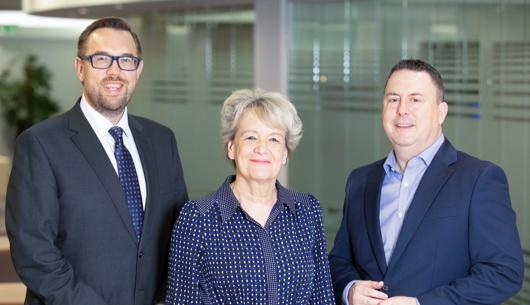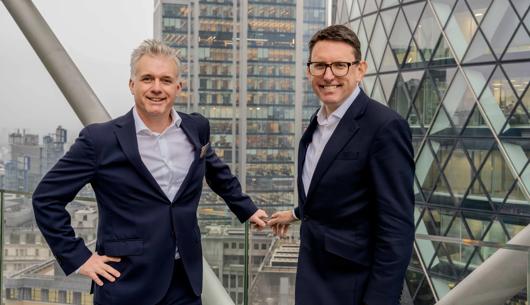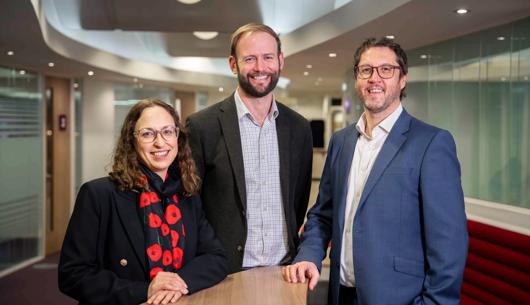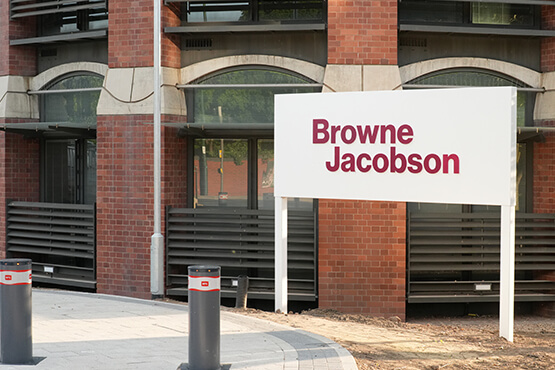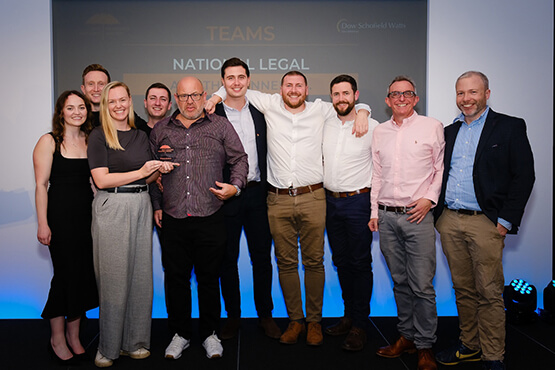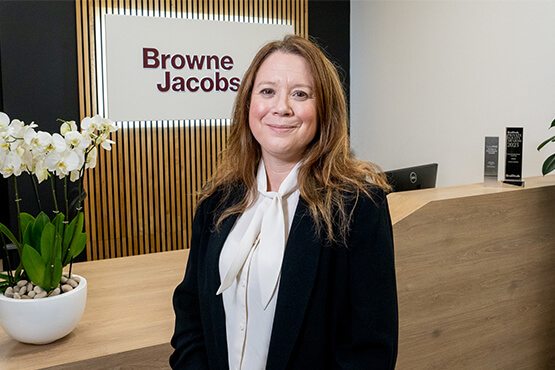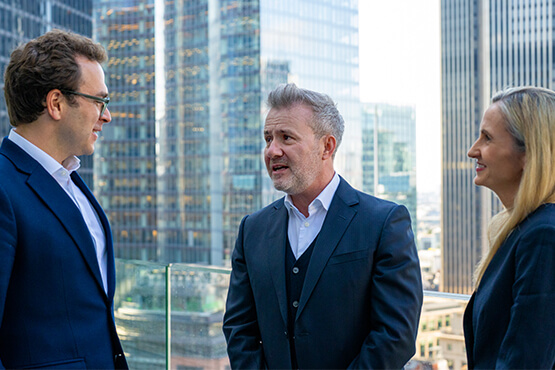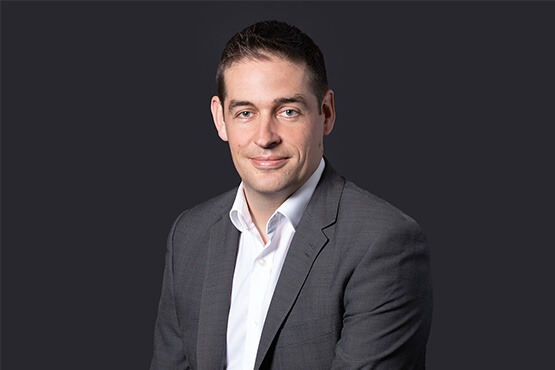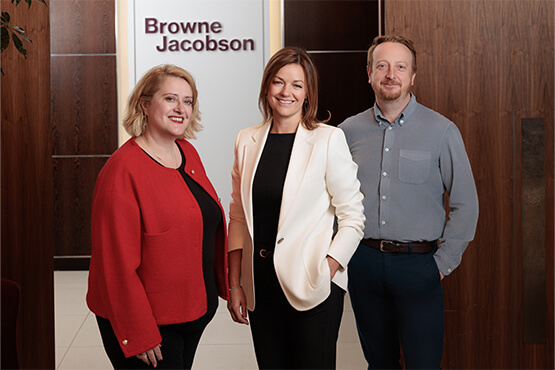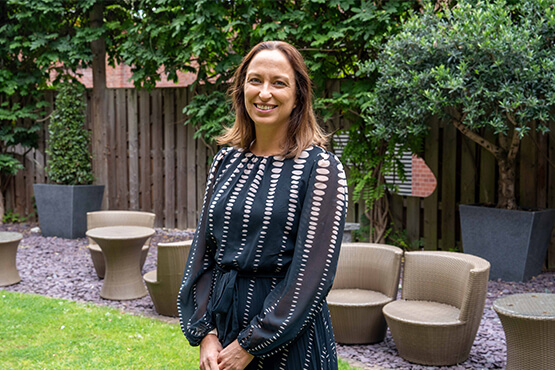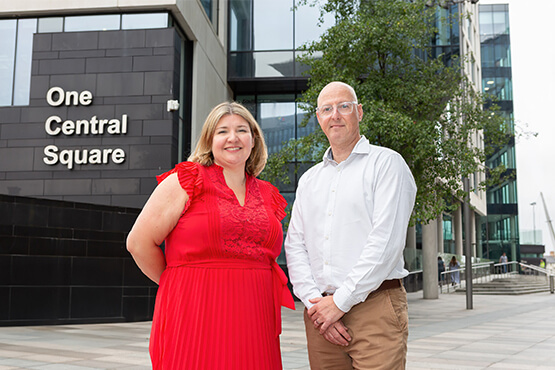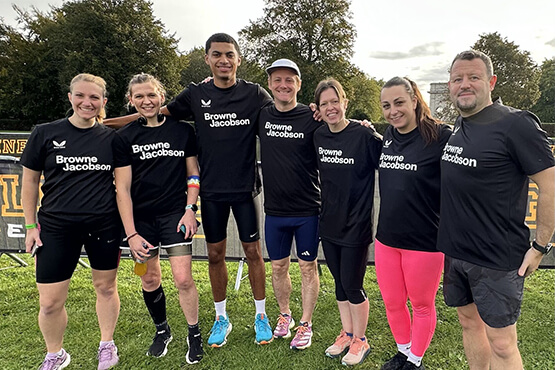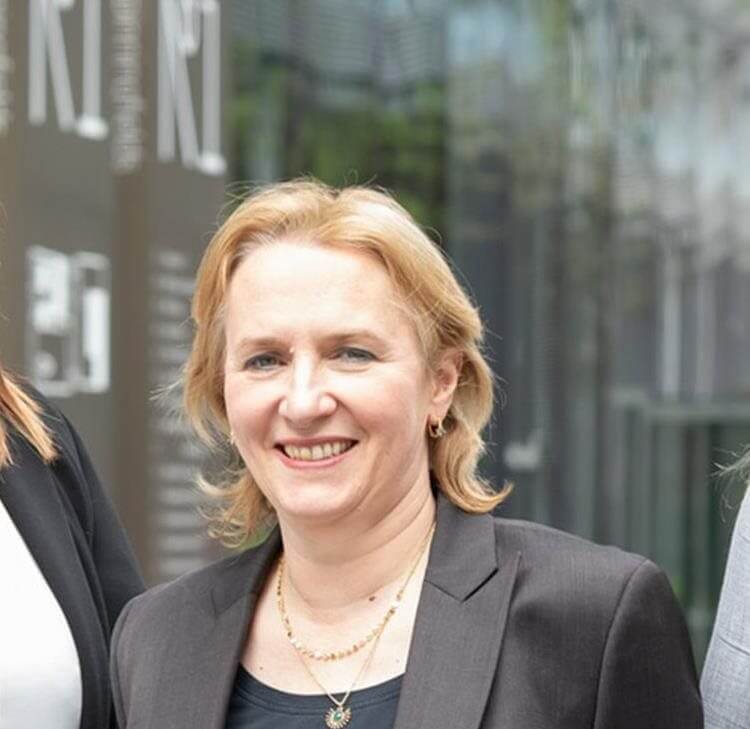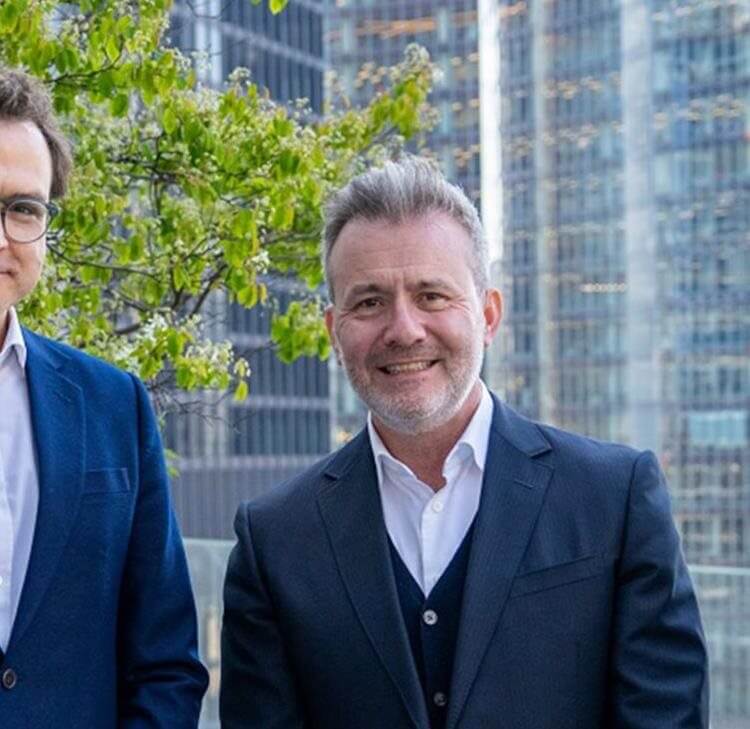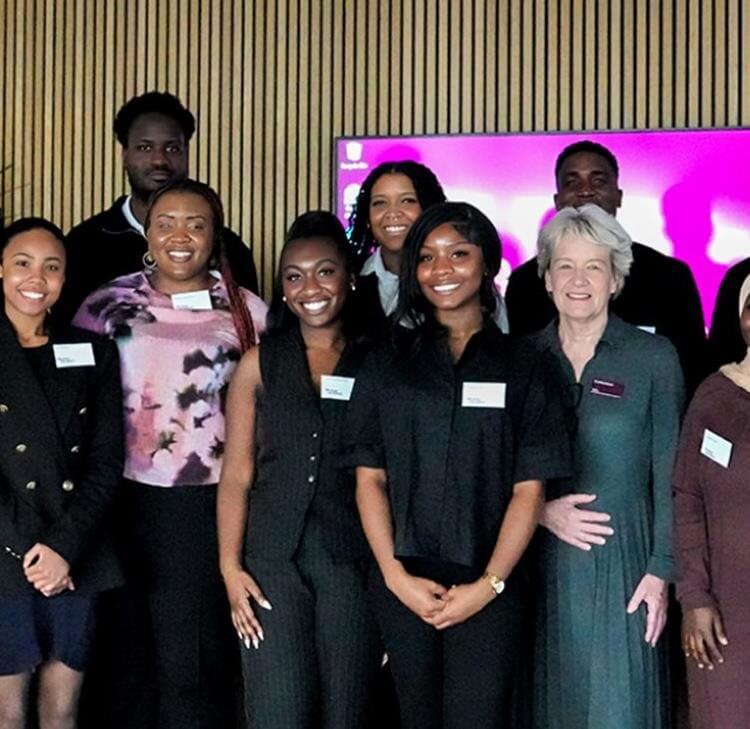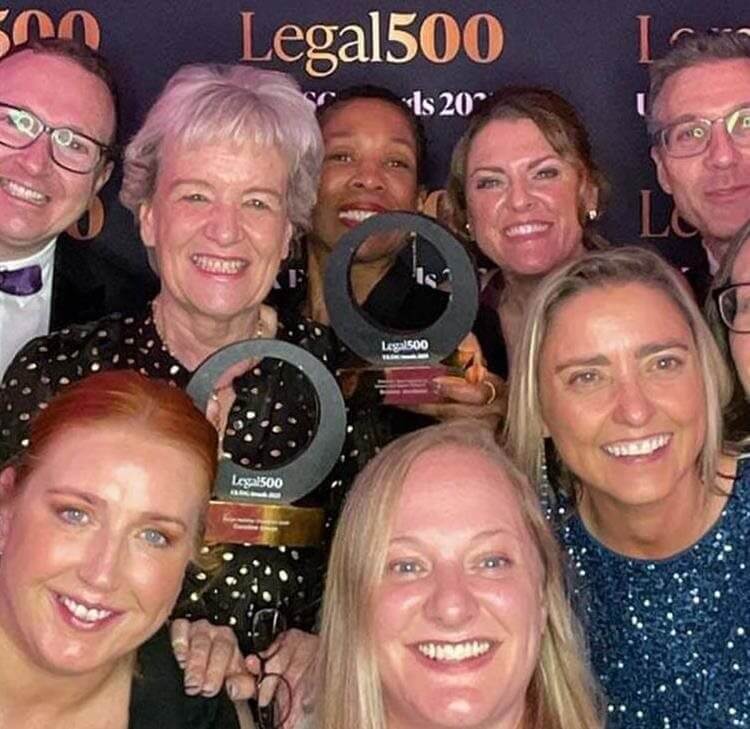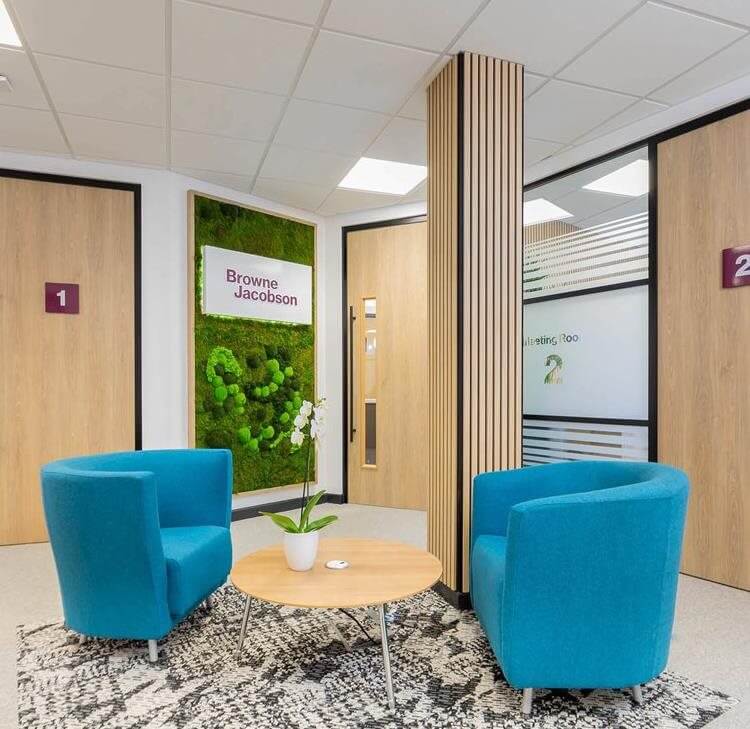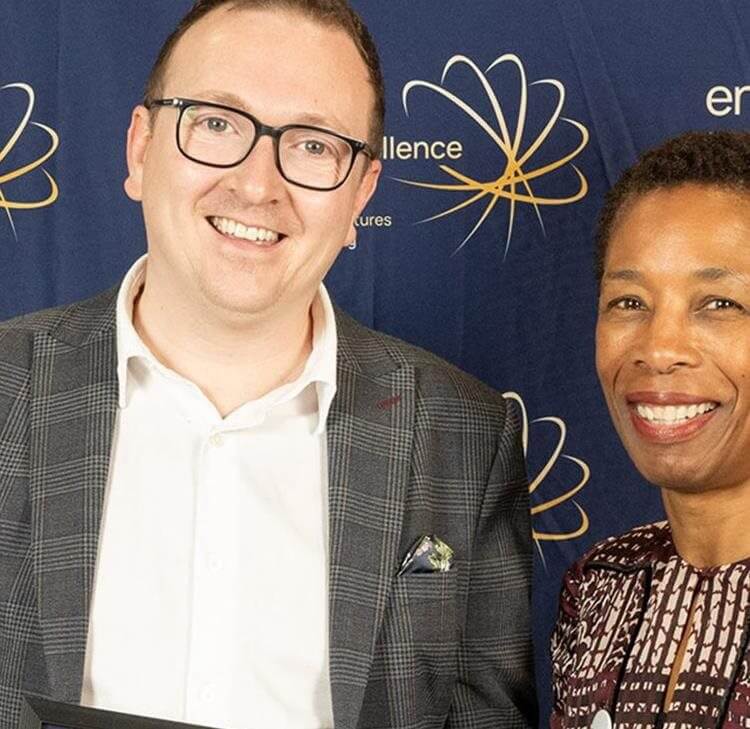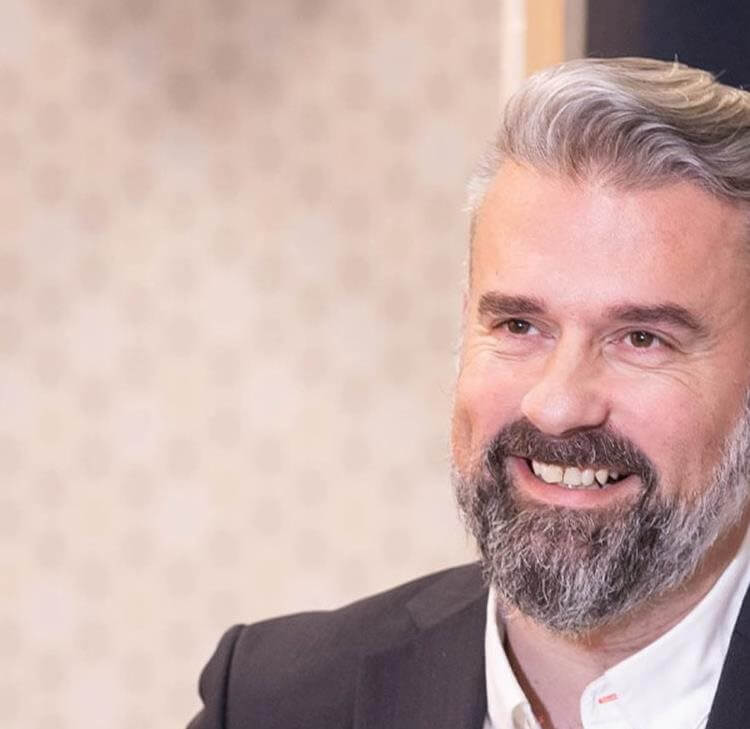How do I apply?
We’re delighted that you’re interested in joining our team at Browne Jacobson!
You can view all our current vacancies here. If you see a role you’d like to apply for, please read the job description thoroughly because we aim to include all the key information about a role there. Then please complete the online application form. You’ll need to submit your CV too.
We review applications and CVs against the criteria outlined in the job description, so please include details of how you’ve shown the qualities described. Pay particular attention to the ‘what technical skills are required for someone to be successful and enjoy the role?’ and ‘who would be a good fit for this role?’ sections of the job description.
Some of our adverts will have closing dates listed, so keep these in mind when you’re considering making an application. If there’s no closing date listed, this means we’re reviewing applications on a rolling basis. If this is the case, it’s best to submit your application sooner rather than later.
We’re a Disability Confident Employer and will offer an interview to disabled applicants who best meet the minimum/essential criteria for the role. When applying for a role, tick on the online application form if you would like to apply through the Disability Confident Interview Scheme.
If you have any questions about the application process, please contact our recruitment team.
Please note, we don’t accept speculative applications.
Before you apply for a job with us, you may find it useful to read the following information:
Diversity, equity and inclusion
Getting to interview stage
If your application is successful, you’ll be invited to an interview. Our recruitment team will contact you by phone or email to arrange a date and time.
Interviews will take place virtually via Microsoft Teams or in person at one of our offices.
If your interview is virtual, our recruitment team will send you an email with a diary invitation and Microsoft Teams link. Don’t worry if you don’t have a Microsoft Teams account, you can still join a meeting. If you’d like a pre-interview test run to check everything’s working, our recruitment team will be happy to support you with this.
If your interview is in person, our recruitment team will send you an email confirming the date and time of your interview, and the address of the office you’ll be attending, including a link to a map and directions.
We’ll also let you know who will be interviewing you, what to expect, and anything you’ll need to prepare in advance, including any testing exercises.
To help you prepare for your interview, we’ve put together this candidate interview pack that outlines what you can expect during the interview process, some background about Browne Jacobson, and some helpful tips to help you succeed.
Candidate interview pack
Thank you for your interest in joining our team at Browne Jacobson. We’re looking forward to meeting you and learning more about you as we progress through the recruitment process. As a leading UK & Ireland law firm, we’re committed to attracting and retaining the best and most diverse talent in the industry. To help you prepare for your interview, we’ve put together this candidate information pack that outlines what you can expect during the interview process, some background about Browne Jacobson, and some helpful tips to help you succeed.
Background
Founded in 1832, Browne Jacobson is a top 50 UK & Ireland law firm with offices in Birmingham, Cardiff, Dublin, Exeter, London, Manchester and Nottingham, where our headquarters is located. We employ over 1,000 people and continue to grow year on year. In 2023/24, our turnover reached £118 million, reflecting a 100% increase in revenues since 2015, when our turnover was £58.9 million.
We have a broad range of practice areas, covering both the public and private sector. Our Target Market Groups (TMGs), which allow us to focus on building long-lasting client relationships, cover health and life sciences, government, education, financial services, insurance and corporates. More information can be found here:
Our success has been recognised by several industry awards over the years. In 2020, we were named Law Firm of the Year at the British Legal Awards and recognised as a Top Employer for Working Families. We have also been ranked in the top tier for numerous practice areas by legal directories such as Chambers and Partners and The Legal 500. Additionally, we were ranked no.1 in the UK’s Top 75 Social Mobility Employer Index for 2021, 2022 and 2024, and no.2 in 2023.
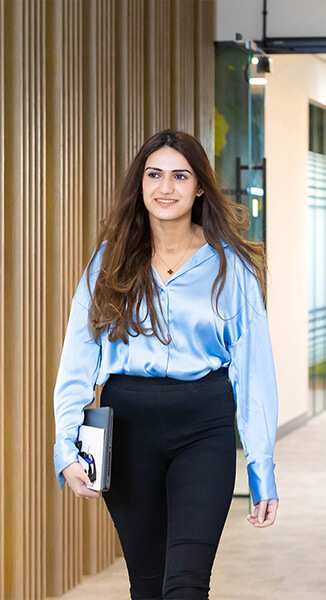
As part of our commitment to helping eliminate bias, particularly bias relating to protected characteristics and socio-economic background, we want our recruitment and selection process to be based on identifying an individual’s potential. Evaluating candidates based on their potential, mindset and behavioural skills rather than solely on their past experience or privilege will help to level the playing field and provide opportunities for individuals from diverse backgrounds to showcase their abilities.
Our hiring managers aim to interview in an ‘O Shaped’, people-centric way. We’ve seen that candidates often focus heavily on showing technical legal knowledge, with less emphasis on showing their broader skillsets. Whilst technical ability is of course important, human skills are equally important when it comes to selecting the right person for the role.
How can you demonstrate your technical ability?
Look at the job specification: In our job specifications, we have a whole section devoted to the technical skills that are required for someone to be successful and enjoy the role. Consider these carefully and try to think of examples of where you have demonstrated these skillsets, so you can talk about these with confidence in the interview.
Example: A role may require the following technical skillset:
- Confident with Excel at a basic to intermediate level including the ability to write simple formulas and using cell formatting.
How can you demonstrate this skill?
- Have you completed any courses in Excel? If so, provide a brief summary of the course/ what you learned for the interviewer.
- Can you write a formula? Tell the interviewer what formulae you are comfortable using, and perhaps mention areas where you’d like to improve your confidence.
Remember, keep examples succinct and focussed on the question. It is a good idea to have different examples prepared to demonstrate different skillsets, as the interviewers probably won’t have time to ask you about all of the skills mentioned in the job specification.
Some interviews may involve a test, case study, assessment, or presentation. These could take place during the interview or may need to be completed beforehand. These tests aren’t designed to trip you up but will assess skills which are essential to the role. You may not know the answer to every question and if that’s the case, please don’t worry. If you don’t know an answer, think about how you’d approach the situation, demonstrating your thought process and reasoning. Our recruitment team will tell you as much information as we can (without giving too much away!) about any tests or assessments that may be required, and if you would like some more detail, please don’t hesitate to ask. We want to help set you up for success and being as prepared as possible for the interview is a big part of that.
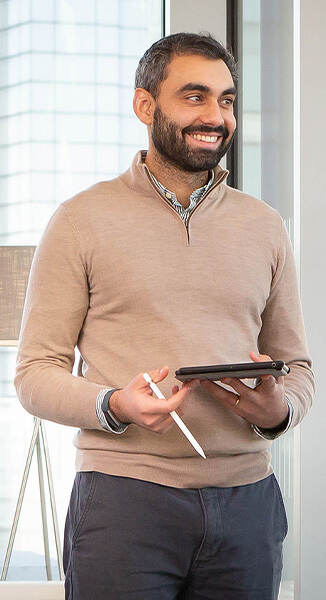
Do you require any adjustments?
We’re all different, and we understand that the application and interview process can be stressful and challenging for many people. If you have a disability or long-term health condition and need any adjustments to help you perform at your best during the application or interview process, please don’t hesitate to contact our recruitment team to discuss how we can support you.
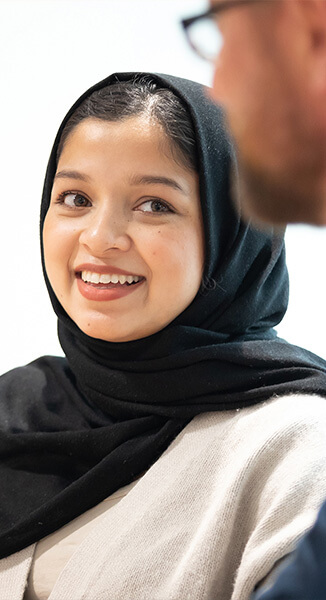
Remember, an interview is a two-way process and a great opportunity for you to assess whether Browne Jacobson, and the role you’re interviewing for, is right for you. To make sure you get the most out of the interview experience, you may wish to consider the following points:
Review your CV
It may seem obvious, but a lot of the interview questions could be based on what you’ve included in your CV, so it’s a good idea to refamiliarise yourself with it.
Prepare your questions
Think about the key things you want to know and jot down your questions ahead of time. Keep them handy during the interview as prompts, so you don’t forget to ask about what’s important to you. Asking thoughtful questions not only helps you to assess how suitable the role is for you, but also demonstrates your interest and engagement. Examples might include:
- I see you’ve worked at the firm for X years, what keeps you here/ keeps you motivated?
- What are the progression opportunities available in the future if I am successful and thrive in this role?
- Are there are any of my answers/ examples that you’d like me to expand on more fully?
- How would you describe the culture at Browne Jacobson?
- Which of the six values resonates with you the most?
Top Tip! Look up your interviewer(s) on our website or LinkedIn to find out a bit more about them – what does their career history look like so far?
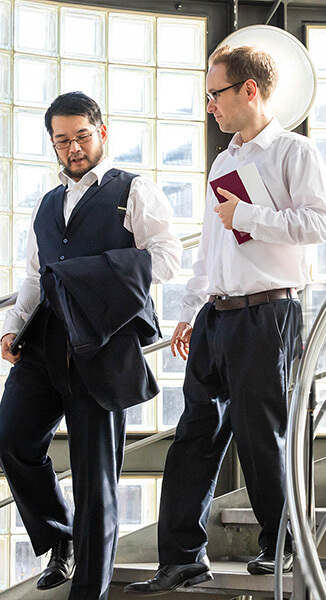
If you’re attending a virtual interview, it’s important to find a quiet and comfortable space where interruptions are less likely.
- We understand that finding a completely private or silent area might not be possible for everyone, so just do your best to minimise distractions.
- Ensure your screen and audio setup allows you to communicate effectively, acknowledging that technology can be unpredictable.
- It’s a good idea to check your equipment and internet connection ahead of time, if possible.
We understand that not everyone has the same access to technology, so please contact our recruitment team if attending a virtual interview isn’t possible for you, or if you have any concerns about finding a suitable quiet space to attend the interview. We can chat to you about alternative options, for example an in-person interview.

- Warm introduction: Greet the interviewer in a friendly, polite and open manner. A simple, “Hello, it’s nice to meet you” can set a positive tone.
- Full responses: Try to give detailed answers and avoid one-word or yes/no responses to the questions. Remember to use examples to illustrate your points when you can.
- Stay on topic: Be concise and focus on answering the question directly. It’s perfectly fine to take a moment to gather your thoughts before responding – this can help you stay focused. If you realise you’ve gone off-topic, don’t worry. Pause briefly, refocus, and steer your response back to the question. Maintaining a steady and calm pace will also help you stay composed and confident.
- Build rapport: Try to show your interest in the conversation through your tone of voice and responses. If making eye contact is challenging, you can demonstrate engagement by nodding or verbal affirmations. It’s about communicating that you’re interested in what the interviewers are telling you about the role, team or firm in a way that feels natural to you.
- Using notes: If you’d like to take a few notes into the interview with you, that’s fine. They can serve as helpful reminders. Just try to avoid reading them word-for-word like a script; instead, use them as prompts if needed.
- Positive conclusion: End the interview in the same friendly manner in which it began, and end on a positive note. Expressing gratitude for the opportunity and the interviewer’s time could be a positive way to end the conversation.
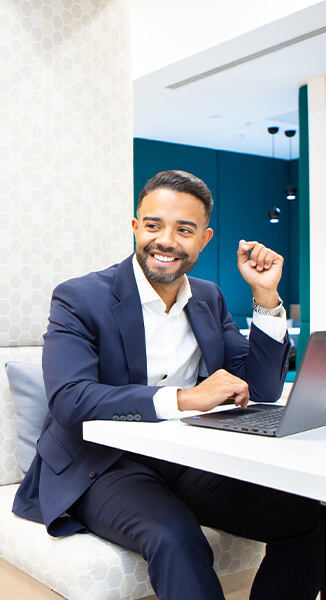
We recognise that there are lots of benefits to using AI, and to realise our ambitions as a firm of the future we need to make sure we embrace the opportunities that it presents.
AI tools such as ChatGPT are creating new and innovative ways of helping candidates apply for roles and prepare for interviews.
The decision to utilise AI in enhancing your application remains at your discretion, however, if you do decide to use any AI tools during the application/ recruitment process, we’d encourage you to follow our below guidance:
| Do | Don't |
|---|---|
| Use AI for information gathering, to help with interview prep or to tailor your CV / application. | Copy and paste answers from ChatGPT into your application, CV or any assessments. |
| Use AI during interview prep to help you to articulate your examples. | Use AI tools in a live interview environment - we want to know the real you. |
| Use it as a preparation tool to help you to find mock interview questions. | Provide answers using AI tools which do not reflect your own experience. |
| Use it to help you think about questions you could ask the interviewer. | Input sensitive or confidential information about you or Browne Jacobson into an AI tool. |
What’s important to us is getting to know the real you. When writing your CV or application form, AI tools can provide a helpful starting point – we all know that starting out with a blank page can be tricky! But remember, you should only consider this as a first draft which will need input from you – your personal skills, experience and personality are critical and will show us why we need you at Browne Jacobson.
Example: You can make use of AI to help you craft a better narrative when talking about your own real-life experiences. Let’s think about a typical interview question: ‘Tell us about a time when you’ve worked as part of a team to achieve a goal. What was your contribution?’
- Think of an example where you’ve worked as part of a team – think about the role you played, and whether you and your team achieved the desired outcome. Make a note of what you would normally say in response to the question.
- You can then ask AI to review your response and suggest improvements.
- Make sure that you proofread the suggestion and edit and refine it, before using it as an answer in your application form (or if you’re prepping for answers to potential interview questions).
- Remember, if you don’t like the suggestion made by AI and prefer your own draft, that’s absolutely fine! You’ll be the best judge of the answer that best represents you and your experiences.
Here are a few other creative ways you may want to consider using AI during the recruitment process:
- Copy and paste the job description into an AI tool and ask it to extract the key skills which have been identified. Think of how you can provide examples to showcase how you’ve demonstrated these key skills through your own past experiences.
- Copy and paste the job description into an AI tool and ask it to give you some example interview questions to help you prepare for what might come up. Remember, AI can’t predict what questions the interviewer will ask you, so just use these suggestions as a guide to aid your preparation.
For some roles, we may ask you to complete an online exercise or case study task prior to your interview. Whilst we understand that you may wish to use AI as a tool to help you refine your answers, we’d caution against using it to complete the task for you. During the interview, our interviewers will discuss your response to the task with you, so it’ll soon be clear if you’ve relied too heavily on AI.
Key takeaway: When using AI during the application/ recruitment process, view it as a tool which can enhance, rather than substitute, your own work.
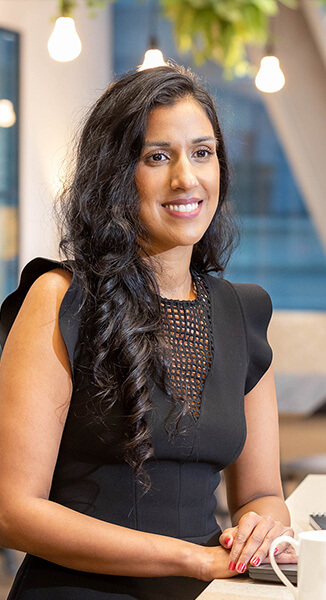
An ideal candidate will have prepared and carried out enough research to know exactly what the firm does, what you’re likely to be doing in the job and why you want to do it.
Be prepared to demonstrate your knowledge and interest in the role – tailor your preparation to the specific position you’re applying for.
Common introductory interview questions the interviewer might ask you include:
- Why did you apply for this position?
- What is your understanding of what the role involves?
- What do you know about the firm and what we do?
- What attracts you to this industry/area of law?
- Why do you want to work here?
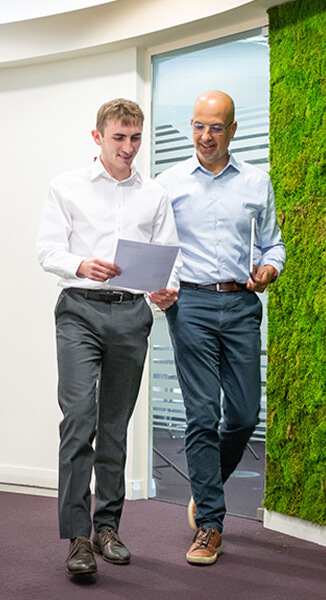
Dress policy
Our dress policy takes the form of a simple guiding principle, ‘dress appropriately’ for your day.
This allows the vast majority of employees at Browne Jacobson to adopt a relaxed style of dress when they are not involved in external meetings.
Our policy does not restrict your clothing or appearance based on gender.
We’ve also proudly adopted the Halo code, supporting those who come to work with natural hair and protective hairstyles associated with their racial, ethnic, and cultural identities.
For an interview, we’d typically recommend smart or smart-casual attire, but please ask your recruitment contact for guidance if you’re unsure.
Travel
Plan your journey to the interview so that you know you’ll get there on time. We’d always recommend that you aim to get there a bit early in case of unanticipated disruptions such as train cancellations or traffic.
If you are running late for any reason, please contact the recruitment team to inform us, letting us know why and what time you think you’ll arrive. We know that even the best laid plans can be derailed by unforeseen circumstances!
What next?
Please feel free to ask the interviewer what the next step in the process will be.
If you have any questions, our recruitment team are always happy to provide support and guidance – please reach out to us if you’d like to discuss your recruitment/ interview processes.
Good luck for your interview!

Thank you for your interest in joining our team at Browne Jacobson. We’re looking forward to meeting you and learning more about you as we progress through the recruitment process. As a leading UK & Ireland law firm, we’re committed to attracting and retaining the best and most diverse talent in the industry. To help you prepare for your interview, we’ve put together this candidate information pack that outlines what you can expect during the interview process, some background about Browne Jacobson, and some helpful tips to help you succeed.
Background
Founded in 1832, Browne Jacobson is a top 50 UK & Ireland law firm with offices in Birmingham, Cardiff, Dublin, Exeter, London, Manchester and Nottingham, where our headquarters is located. We employ over 1,000 people and continue to grow year on year. In 2023/24, our turnover reached £118 million, reflecting a 100% increase in revenues since 2015, when our turnover was £58.9 million.
We have a broad range of practice areas, covering both the public and private sector. Our Target Market Groups (TMGs), which allow us to focus on building long-lasting client relationships, cover health and life sciences, government, education, financial services, insurance and corporates. More information can be found here:
Our success has been recognised by several industry awards over the years. In 2020, we were named Law Firm of the Year at the British Legal Awards and recognised as a Top Employer for Working Families. We have also been ranked in the top tier for numerous practice areas by legal directories such as Chambers and Partners and The Legal 500. Additionally, we were ranked no.1 in the UK’s Top 75 Social Mobility Employer Index for 2021, 2022 and 2024, and no.2 in 2023.

As part of our commitment to helping eliminate bias, particularly bias relating to protected characteristics and socio-economic background, we want our recruitment and selection process to be based on identifying an individual’s potential. Evaluating candidates based on their potential, mindset and behavioural skills rather than solely on their past experience or privilege will help to level the playing field and provide opportunities for individuals from diverse backgrounds to showcase their abilities.
Our hiring managers aim to interview in an ‘O Shaped’, people-centric way. We’ve seen that candidates often focus heavily on showing technical legal knowledge, with less emphasis on showing their broader skillsets. Whilst technical ability is of course important, human skills are equally important when it comes to selecting the right person for the role.
How can you demonstrate your technical ability?
Look at the job specification: In our job specifications, we have a whole section devoted to the technical skills that are required for someone to be successful and enjoy the role. Consider these carefully and try to think of examples of where you have demonstrated these skillsets, so you can talk about these with confidence in the interview.
Example: A role may require the following technical skillset:
- Confident with Excel at a basic to intermediate level including the ability to write simple formulas and using cell formatting.
How can you demonstrate this skill?
- Have you completed any courses in Excel? If so, provide a brief summary of the course/ what you learned for the interviewer.
- Can you write a formula? Tell the interviewer what formulae you are comfortable using, and perhaps mention areas where you’d like to improve your confidence.
Remember, keep examples succinct and focussed on the question. It is a good idea to have different examples prepared to demonstrate different skillsets, as the interviewers probably won’t have time to ask you about all of the skills mentioned in the job specification.
Some interviews may involve a test, case study, assessment, or presentation. These could take place during the interview or may need to be completed beforehand. These tests aren’t designed to trip you up but will assess skills which are essential to the role. You may not know the answer to every question and if that’s the case, please don’t worry. If you don’t know an answer, think about how you’d approach the situation, demonstrating your thought process and reasoning. Our recruitment team will tell you as much information as we can (without giving too much away!) about any tests or assessments that may be required, and if you would like some more detail, please don’t hesitate to ask. We want to help set you up for success and being as prepared as possible for the interview is a big part of that.

Do you require any adjustments?
We’re all different, and we understand that the application and interview process can be stressful and challenging for many people. If you have a disability or long-term health condition and need any adjustments to help you perform at your best during the application or interview process, please don’t hesitate to contact our recruitment team to discuss how we can support you.

Remember, an interview is a two-way process and a great opportunity for you to assess whether Browne Jacobson, and the role you’re interviewing for, is right for you. To make sure you get the most out of the interview experience, you may wish to consider the following points:
Review your CV
It may seem obvious, but a lot of the interview questions could be based on what you’ve included in your CV, so it’s a good idea to refamiliarise yourself with it.
Prepare your questions
Think about the key things you want to know and jot down your questions ahead of time. Keep them handy during the interview as prompts, so you don’t forget to ask about what’s important to you. Asking thoughtful questions not only helps you to assess how suitable the role is for you, but also demonstrates your interest and engagement. Examples might include:
- I see you’ve worked at the firm for X years, what keeps you here/ keeps you motivated?
- What are the progression opportunities available in the future if I am successful and thrive in this role?
- Are there are any of my answers/ examples that you’d like me to expand on more fully?
- How would you describe the culture at Browne Jacobson?
- Which of the six values resonates with you the most?
Top Tip! Look up your interviewer(s) on our website or LinkedIn to find out a bit more about them – what does their career history look like so far?

If you’re attending a virtual interview, it’s important to find a quiet and comfortable space where interruptions are less likely.
- We understand that finding a completely private or silent area might not be possible for everyone, so just do your best to minimise distractions.
- Ensure your screen and audio setup allows you to communicate effectively, acknowledging that technology can be unpredictable.
- It’s a good idea to check your equipment and internet connection ahead of time, if possible.
We understand that not everyone has the same access to technology, so please contact our recruitment team if attending a virtual interview isn’t possible for you, or if you have any concerns about finding a suitable quiet space to attend the interview. We can chat to you about alternative options, for example an in-person interview.

- Warm introduction: Greet the interviewer in a friendly, polite and open manner. A simple, “Hello, it’s nice to meet you” can set a positive tone.
- Full responses: Try to give detailed answers and avoid one-word or yes/no responses to the questions. Remember to use examples to illustrate your points when you can.
- Stay on topic: Be concise and focus on answering the question directly. It’s perfectly fine to take a moment to gather your thoughts before responding – this can help you stay focused. If you realise you’ve gone off-topic, don’t worry. Pause briefly, refocus, and steer your response back to the question. Maintaining a steady and calm pace will also help you stay composed and confident.
- Build rapport: Try to show your interest in the conversation through your tone of voice and responses. If making eye contact is challenging, you can demonstrate engagement by nodding or verbal affirmations. It’s about communicating that you’re interested in what the interviewers are telling you about the role, team or firm in a way that feels natural to you.
- Using notes: If you’d like to take a few notes into the interview with you, that’s fine. They can serve as helpful reminders. Just try to avoid reading them word-for-word like a script; instead, use them as prompts if needed.
- Positive conclusion: End the interview in the same friendly manner in which it began, and end on a positive note. Expressing gratitude for the opportunity and the interviewer’s time could be a positive way to end the conversation.

We recognise that there are lots of benefits to using AI, and to realise our ambitions as a firm of the future we need to make sure we embrace the opportunities that it presents.
AI tools such as ChatGPT are creating new and innovative ways of helping candidates apply for roles and prepare for interviews.
The decision to utilise AI in enhancing your application remains at your discretion, however, if you do decide to use any AI tools during the application/ recruitment process, we’d encourage you to follow our below guidance:
| Do | Don't |
|---|---|
| Use AI for information gathering, to help with interview prep or to tailor your CV / application. | Copy and paste answers from ChatGPT into your application, CV or any assessments. |
| Use AI during interview prep to help you to articulate your examples. | Use AI tools in a live interview environment - we want to know the real you. |
| Use it as a preparation tool to help you to find mock interview questions. | Provide answers using AI tools which do not reflect your own experience. |
| Use it to help you think about questions you could ask the interviewer. | Input sensitive or confidential information about you or Browne Jacobson into an AI tool. |
What’s important to us is getting to know the real you. When writing your CV or application form, AI tools can provide a helpful starting point – we all know that starting out with a blank page can be tricky! But remember, you should only consider this as a first draft which will need input from you – your personal skills, experience and personality are critical and will show us why we need you at Browne Jacobson.
Example: You can make use of AI to help you craft a better narrative when talking about your own real-life experiences. Let’s think about a typical interview question: ‘Tell us about a time when you’ve worked as part of a team to achieve a goal. What was your contribution?’
- Think of an example where you’ve worked as part of a team – think about the role you played, and whether you and your team achieved the desired outcome. Make a note of what you would normally say in response to the question.
- You can then ask AI to review your response and suggest improvements.
- Make sure that you proofread the suggestion and edit and refine it, before using it as an answer in your application form (or if you’re prepping for answers to potential interview questions).
- Remember, if you don’t like the suggestion made by AI and prefer your own draft, that’s absolutely fine! You’ll be the best judge of the answer that best represents you and your experiences.
Here are a few other creative ways you may want to consider using AI during the recruitment process:
- Copy and paste the job description into an AI tool and ask it to extract the key skills which have been identified. Think of how you can provide examples to showcase how you’ve demonstrated these key skills through your own past experiences.
- Copy and paste the job description into an AI tool and ask it to give you some example interview questions to help you prepare for what might come up. Remember, AI can’t predict what questions the interviewer will ask you, so just use these suggestions as a guide to aid your preparation.
For some roles, we may ask you to complete an online exercise or case study task prior to your interview. Whilst we understand that you may wish to use AI as a tool to help you refine your answers, we’d caution against using it to complete the task for you. During the interview, our interviewers will discuss your response to the task with you, so it’ll soon be clear if you’ve relied too heavily on AI.
Key takeaway: When using AI during the application/ recruitment process, view it as a tool which can enhance, rather than substitute, your own work.

An ideal candidate will have prepared and carried out enough research to know exactly what the firm does, what you’re likely to be doing in the job and why you want to do it.
Be prepared to demonstrate your knowledge and interest in the role – tailor your preparation to the specific position you’re applying for.
Common introductory interview questions the interviewer might ask you include:
- Why did you apply for this position?
- What is your understanding of what the role involves?
- What do you know about the firm and what we do?
- What attracts you to this industry/area of law?
- Why do you want to work here?

Dress policy
Our dress policy takes the form of a simple guiding principle, ‘dress appropriately’ for your day.
This allows the vast majority of employees at Browne Jacobson to adopt a relaxed style of dress when they are not involved in external meetings.
Our policy does not restrict your clothing or appearance based on gender.
We’ve also proudly adopted the Halo code, supporting those who come to work with natural hair and protective hairstyles associated with their racial, ethnic, and cultural identities.
For an interview, we’d typically recommend smart or smart-casual attire, but please ask your recruitment contact for guidance if you’re unsure.
Travel
Plan your journey to the interview so that you know you’ll get there on time. We’d always recommend that you aim to get there a bit early in case of unanticipated disruptions such as train cancellations or traffic.
If you are running late for any reason, please contact the recruitment team to inform us, letting us know why and what time you think you’ll arrive. We know that even the best laid plans can be derailed by unforeseen circumstances!
What next?
Please feel free to ask the interviewer what the next step in the process will be.
If you have any questions, our recruitment team are always happy to provide support and guidance – please reach out to us if you’d like to discuss your recruitment/ interview processes.
Good luck for your interview!




